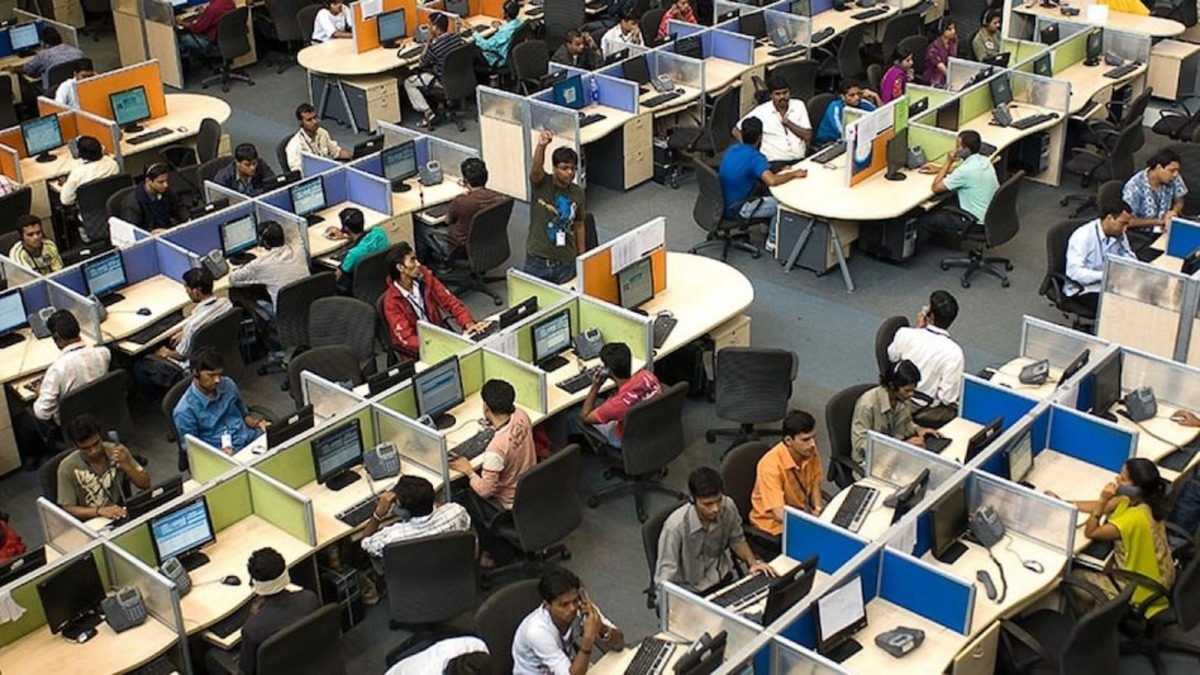The Indian IT, ITeS, BPO, and BPM industries collectively employ over 50,00,000 people in India
The Indian IT, ITeS, BPO, and BPM sectors collectively employ over 50,00,000 people in India and their jobs seem to be at stake with the rapid advancements in AI and ML.
- Updated Apr 05, 2023, 1:21 PM IST
The latest developments in artificial intelligence (AI) and machine learning are expected to have a significant impact on a wide range of professions and industries, especially on the jobs in the Indian IT, ITeS, BPO, and BPM industries. These sectors collectively employ over 50,00,000 people and are the biggest source of white-collar jobs in India.
Sridhar Vembu, the CEO and co-founder of Zoho, noted that AI advancements will have a negative impact on the IT and tech services sector. In a statement written to the central government, Vembu along with Rajiv Kumar, former Niti Aayog vice chairman, and Sharad Sharma, co-founder of iSPIRT Foundation, highlighted how AI advancements may be chaotic and catastrophic for a country like India, whose majority population is quite young.
“For a remarkably young country like India, with a median age of 29, it is clear that AI could put millions of jobs at risk almost overnight,” Vembu said.
Building on that, experts and industry insiders believe that the “low-skill” service workers are going to be most impacted by the advancements in AI. This includes call center workers, workers involved in data entry tasks computer operators, entry-level software engineers in IT and ITeS companies, entry-level software developers, entry-level BPO workers, etc.
Sekhar Garisa, CEO of foundit, previously Monster.com, told Business Today that in the immediate to short term, 7 per cent low-skilled service sector workforce will be replaced by AI.
“It is anticipated that the immersion of AI might take a toll on low-skilled professionals within the service sector in the future. Some redundant roles will see a declining phase marking close to a 7 per cent decrease in the workforce in the immediate to short term,” he noted.
Vardhman Jain, founder and Vice Chairman of Access Healthcare, a BPO based out of Chennai, also echoed these views and said that customer service is going to be the sector that would be hit hard in the initial phases of AI integration at the workplace.
“Many of the services that the Indian BPO industry provides are in the realm of customer support (voice and chat), data entry, and back-office services. AI technologies such as Natural Language Processing, ML, and RPA can potentially disrupt and automate these tasks,” Jain said.
Despite the imminent negative impact on the workforce, experts note that AI integration in the workforce is economical, efficient, and increases productivity and cannot be ignored.
Santhosh Nair, Director, and COO of CIEL HR, is of the view that AI integration can lead to the same level of productivity from a smaller workforce, making it the more economic option for the company.
“While AI at its current state of development may not eliminate human workers entirely, it can reduce the number of employees required to perform the same tasks. For example, in the case of customer services, AI tools can handle a large volume of inquiries and provide assistance in multiple languages, thereby freeing up human workers to focus on more complex tasks,” Nair said.
He further explained that the economic efficiencies make AI critical for companies. “It is important for companies to keep track of AI trends and integrate it in the workforce as and when required,” he said.
But regardless of the economic efficiencies that AI can bring to a workplace, experts believe that true AI integration in the workplace is still a relatively distant reality, because of the economic cost attached to it.
“AI integration in the workplace would depend on multiple factors including the economics of it. Timelines are difficult to predict, but it would mainly depend on AI affordability, and the service provider’s and customers’ willingness to invest in the innovation,” explained Jain.
But does it mean we can sit tight and not worry about AI taking away our jobs? That does not seem to be an option.
On an individual level, experts say that upskilling is the most secure bet.
Garisa of foundit, previously Moster.com, noted: “The gaps in the skills of our workforce have been highlighted, there is a need for upskilling and reskilling. As per our data, in the next five years, 40 per cent of the service sector employees will need reskilling and 60 per cent of the same will need to upskill to be market ready.”
On a collective level as a society, regulation, and policy seem to be critical. An open letter issued by the Future of Life Institute calls upon all AI labs worldwide to pause the training of AI systems more powerful than GPT 4 for six months.
Furthermore, experts like Vembu and others are calling for rapid policy and regulatory intervention by governments across the world. In the long term, a swift change in the education system has become the need of the hour.
Published on: Apr 05, 2023, 1:21 PM IST
Posted by: aakanksha chaturvedi, Apr 05, 2023, 12:26 PM IST
